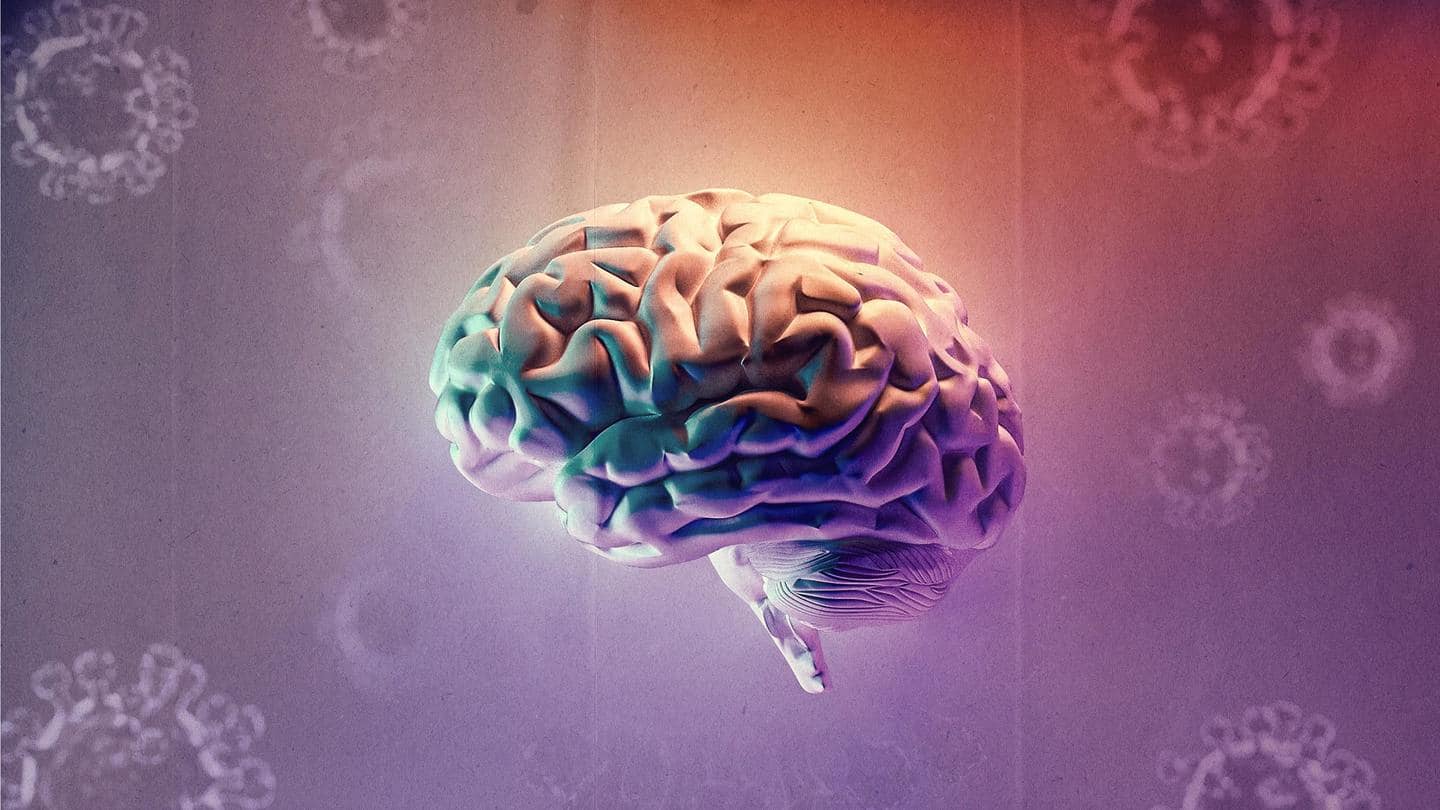
Immune response induced by COVID-19 can seriously damage brain: Study
What's the story
The immunological response induced by COVID-19 infection can damage blood vessels in the brain and cause short and long term neurological problems, a study by the National Institutes of Health (NIH) revealed. The outcome could be possible after the researchers from the National Institute of Neurological Disorders and Stroke (NINDS) analyzed brain abnormalities in nine persons who died abruptly after getting the virus.
Findings
Antibody response, not COVID-19 virus causes brain damage: Study
In the study, which has been published in Brain, the researchers discovered evidence that antibodies are engaged in an attack on the cells lining the blood arteries in the brain, causing inflammation and damage. The SARS-CoV-2 was not discovered in the patients' brains, which is consistent with previous research by the group, indicating that the virus was not directly invading the brain.
Details
Study reveals brain damage pattern in COVID-19 patients
The new study reveals the brain damage pattern of SARS-CoV-2. It may help develop therapies for COVID-19 patients with lingering neurological symptoms. "We had previously shown blood vessel damage and inflammation in patients' brains at autopsy. I think in this paper we've gained important insight into the cascade of events," Avindra Nath, clinical director at NINDS and the senior author of the study.
Do you know?
What further consequences does the new study have?
According to NIH researchers, the study may have implications for diagnosing and controlling long-term neurological symptoms such as headaches, tiredness, sleep problems, and brain fog in COVID-19 patients. They noted that they will considerably enhance the treatment strategy.
Impact
How does it risk the person?
Dr. Nath and his colleagues, as per the Brain discovered that antibodies created in response to COVID-19 may inappropriately attack blood-brain barrier cells. They said tightly packed endothelial cells aid in the formation of the blood-brain barrier but any damage to endothelial cells in blood arteries in the brain can induce protein leakage, which can raise the risk of stroke.
Expert view
How do scientists explain the impact?
For the first time, scientists observed immune complex deposits in the brains of COVID-19 patients when antibodies bind antigens present on the surface of endothelial cells. Such immune complexes induce tissue damage by causing inflammation. Prior to the investigation, leaky blood arteries were discovered using immunohistochemistry. When there is leakage, immune cells such as macrophages may heal the damage but induce neuronal harm.
Information
What impact does it cause at the gene level?
As per the details revealed by researchers in the study, genes tend to respond when endothelial cells are injured. They said over 300 genes exhibited a drop in expression, whereas 6 genes showed an increase in expression. These genes are associated with metabolic processes, DNA damage, and oxidative stress. These findings give information on the immune response that causes brain injury following COVID-19 infection.